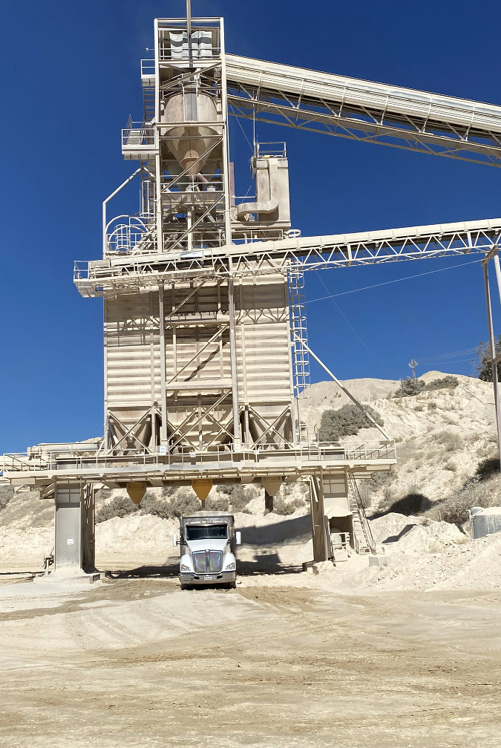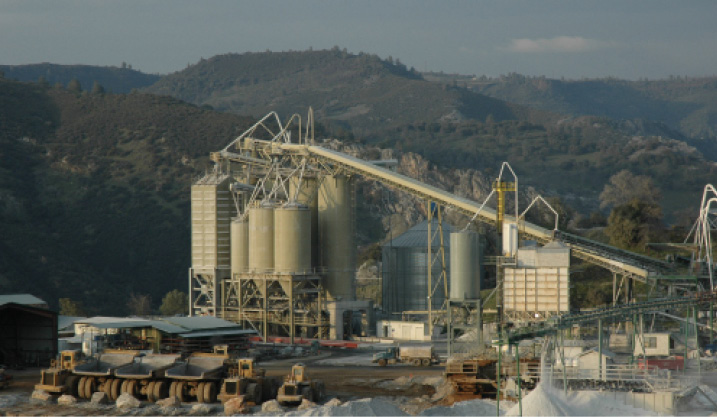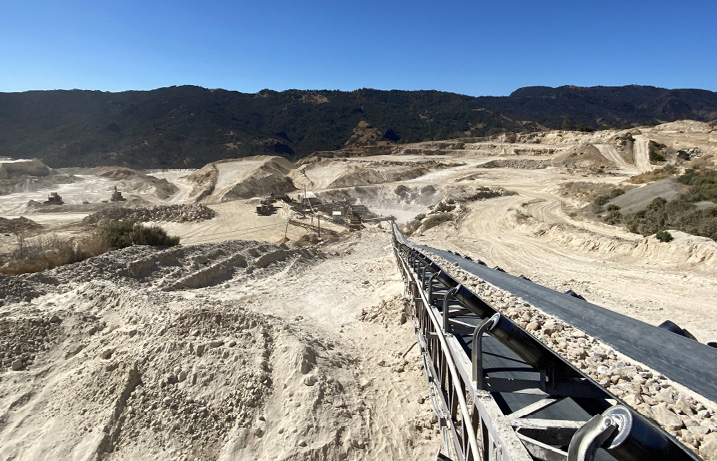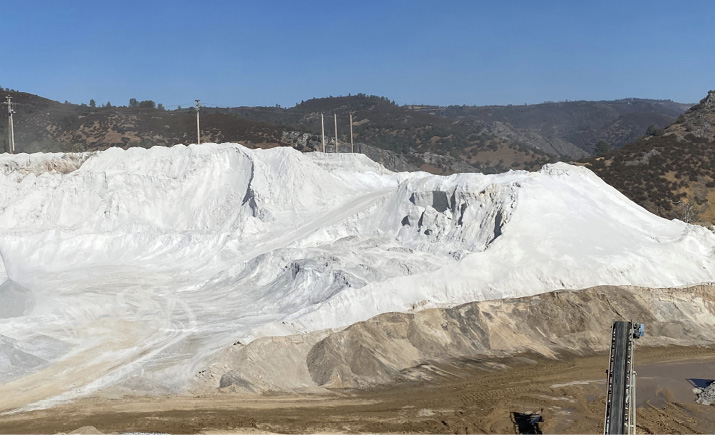The Company Serves Its Local Community In More Ways Than Just Mining Limestone.
By Julia Maldonado

Limestone is ubiquitous. Ranging from car windshields, windows on our houses, eggs we eat for breakfast, and wine bottles we drink from, limestone has a vital role in the creation of our everyday items. Most people are unaware of limestone’s versatility.
“If you live in California, you probably have, in one way or another, encountered something associated with Blue Mountain Minerals,” said John Salkowski, president and CFO of the company.
Located in Columbia and Paso Robles, Calif., Blue Mountain Minerals is unique in many ways. Established in the 1850s as a marble quarry, Blue Mountain Minerals now produces the largest quantity of crushed limestone products in Northern California.
Chemical Makeup
Blue Mountain Minerals distinguishes itself from other limestone quarries through the chemical makeup of its limestone. While the Paso Robles location is a typical homogeneous limestone quarry, the Columbia quarry contains limestone with different qualities that appeal to various markets. Blue Mountain Minerals sells to industries including glass manufacturing (container and flat glass), agriculture, animal feed, and construction.
On the agricultural side, its products help improve soil’s water holding capacity, infiltration and provide essential nutrients for California’s agricultural heartland, which produces more than 400 crops, including prized wine grapes and 80% of the world’s almonds. Adding its limestone-based products to animal feed introduces calcium to milk, helps cows and chickens develop strong bones, and strengthens eggshells.
Green Process
Mining limestone is an overall green process at Blue Mountain Minerals. “We recycle all of the water that we use,” Salkowski said. “We don’t really have a whole lot of greenhouse gas emissions because we don’t calcine our material. Our product is pretty green as it is.”
Mining and processing limestone takes a dedicated team with different skill sets. Blue Mountain Minerals has 72 employees across both quarries, which consists of laborers, production workers, lab technicians, maintenance workers such as millwrights, heavy equipment mechanics, sales force, and administrative staff.
“Basically, we have a job for anyone who wants to work,” Salkowski said.
Safety and Health
Blue Mountain Minerals prioritizes the health and safety of its workers in regard to the pandemic and the nature of the job. During the ongoing pandemic, Blue Mountain Minerals implemented strict guidelines including temperature checks, daily screening, 6 ft. of separation, test kits, disinfecting wipes in all vehicles, and other measures.
“Although the pandemic has affected the operations as far as adding additional steps to getting things accomplished, we’ve still been able to service all our customers,” Salkowski said.
Blue Mountain Minerals prepares its labor force with safety gear, tailgate meetings, unlimited respirators, prescription safety glasses and more. The company also provides services such as hearing tests and CPR training, so safety is constantly being monitored and enforced.
Not only does the company value its employees, but also its community. Salkowski said that the company is involved with the community with donations, such as truckloads of rock to auction off, donating to the local community theatre and art shows, and working with Meals on Wheels and Habitat for Humanity.
Impacting Community
Blue Mountain Minerals is also a big supporter of the Columbia State Historic Park where its marble can be found in the floors of some of the historic buildings. Its aggregates are used for walkways and streets.
Because Blue Mountain Minerals plays a big role in the community, it’s unlikely that residents are unaware of the company’s impact.
“There are very few people in the community who don’t know us,” Salkowski said. “We value our employees, but we also value the community that we live in.”
Blue Mountain Minerals not only serves a large part of California with its products but serves its local community in more ways than solely mining limestone.
Julia Maldonado is communications coordinator for the California Construction and Industrial Materials Association.



